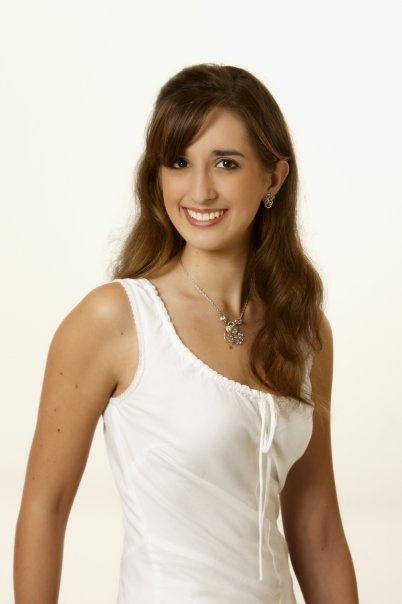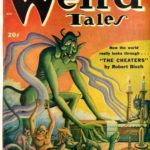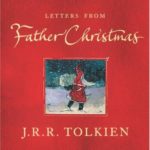Bringing The Personal To The Universal

Hardly a fantasy author alive has not heard her or his work referred to as “Tolkien-esque.”
You know what I’m talking about, fellow writers! “Tolkien-esque” or the “next C.S. Lewis” or some strange combination thereof. These days, there might be a few new names thrown in for good measure. “An epic romance reminiscent of Twilight.” Have you written one of those? Or how about “fun and magic on a par with Harry Potter”?
The fact is, as great a marketing ploy as these comparisons might be, they are often nothing short of embarrassing. I know I’ve cringed when I’ve seen my work declared “Tolkien-like.” Huh? How are my allegorical fairy tales for teens anything like that VAST adult fantasy epic?
Or, because it contains allegorical threads, my work must be “similar to C.S. Lewis’s Narnia.” What? Allegory aside, how are my romantic/comedic full-length YA novels even remotely comparable to those short classics written for children?
Worst of all was a big banner in a magazine calling my work: “A Tolkien-esque fantasy for the Twilight audience.”
(Insert tears here.)
“All that work!” I cry. “All those years of English major drudgery! All those carefully constructed literary themes! Shall I then be dismissed as a wanna-be copycat jumping on a popular bandwagon?”
So I take myself away to sulk about it for a while. When the sulking ends, however, I have to start thinking . . .
Great fiction is made up of themes: Love and longing, coming of age, voyage and return, fathers, sons, daughters, mothers, overcoming the monster, death, birth, and more. These are universals, themes that can be, on one level or another, understood by any man or woman. The fantasy genre is a place of extremes, thus these themes become even more dominant. The monsters to overcome are literal dragons or warlords. A maiden’s love or a hero’s longing means the binding of great alliances, the rise and fall of nations. Fathers are kings, sons are thieves, daughters are warrior maidens, and mothers are enchantresses. All these universals take on a proportion so much bolder than life that they become truly fantastic and unreal.
They can also start looking repetitive.
Because they drew us to fantasy in the first place, these extreme universals and archetypal characters are what we want both to write and to read. But in a sea of handsome Chosen Ones, feisty heroines, dark lords, and made-up names, how can our stories hope to stand out?
We must learn how to bring the personal to the universal.
My most brilliant plot-device, character arc, or surprise twist is never going to be original. Not on its own. All those universal themes have been done before and by better writers. But the one thing those authors (I’m talking to you Messrs Tolkien and Lewis!) can never bring to their work is . . . me.
Only I can do that.
The temptation, especially for young writers, is to ignore this. “After all,” we tend to say, “what have I got that’s interesting enough to live in the pages of epics? I’m too young. I’m too old. I’m too inexperienced. I’m too boring. That’s why I write fantasy, to liven up my ordinary life!”
So we fall into clichés. We fall into cheesiness, writing about epic themes without the personal touch. We take ourselves very seriously and therefore lose credibility.
But I’m here today to argue that cheesiness and clichés need not be our fate! We can work with the brilliant, the epic, the universal themes so wonderful in the genre, but we can use our own experiences. For instance . . .
Did you ever have a first crush? For young and old, this is a pretty universal experience. But your personal experience of those first-time feelings–the sudden sense that maybe childhood perspectives on boys and girls are insufficient, that there might be more, that you might be more–is unique. Have you ever stopped to analyze that singular coming-of-age moment in your life?
Or how about this: Have you ever been assigned a task for which you felt inadequate? Babysitting three toddlers at once? Giving birth? Passing an algebra exam? Organizing a team that simply refuses to be organized? Ordinary experiences, to be sure, hardly the stuff of epics. And yet, the very real and very stressful feelings of your personal experience are universals that carry over to the world of danger, dragons, and dire deeds that is the fantasy genre.
These are basic examples. Yet they translate beautifully into themes everyone understands! And when I began recognizing this notion of the personal/universal, I first saw my own work take on life.
 Like the heroine in Heartless, I have foolishly built dream-castles on a young man who didn’t keep his promises. Like the hero in Veiled Rose, I’ve struggled to redefine my identity and lost myself in the process. Like the hero in Moonblood, I have thought I could earn my own redemption. Like the heroine in upcoming Starflower, I have experienced having no “voice” simply because I am a woman. Like the hero in my recent work-in-progress, I have experienced my human limitations–lack of beauty, lack of brains, lack of respect–and despaired in inadequacy.
Like the heroine in Heartless, I have foolishly built dream-castles on a young man who didn’t keep his promises. Like the hero in Veiled Rose, I’ve struggled to redefine my identity and lost myself in the process. Like the hero in Moonblood, I have thought I could earn my own redemption. Like the heroine in upcoming Starflower, I have experienced having no “voice” simply because I am a woman. Like the hero in my recent work-in-progress, I have experienced my human limitations–lack of beauty, lack of brains, lack of respect–and despaired in inadequacy.
Like my characters, I have sinned, I have stumbled, I have made a hash of my life. And I have been the recipient of undeserved grace!
My life experiences have been simple enough. A sheltered child, an ambitious student, a hard worker at various jobs, a friend, a sister, a daughter, a wife, an animal-fanatic . . . Nothing worthy of epics. I am not a brilliant Oxford don with war-time experience and decades of classical and theological education under my belt.
But I have faced my own dragons. I have seen my own kingdoms rise and fall.
So let this be my encouragement to you: Use these universal themes of love and longing, death and life, monsters and kings and Chosen Ones. Use them with excitement, knowing they will touch the hearts of your readers. But remember that your personal experience of these universals will bring the originality, the freshness your work needs. Don’t make your heroes Aragorns or Harry Potters . . . make them you. Don’t make your heroines Bella Swans or Lucy Pevensies . . . make them you.
For there has never been a “you” before now. Bring your personal to those classic universals, and you’ll find you have something new. Yes, by pure virtue of being fantasy, it will be compared to Tolkien. But you will never be Tolkien. You will only be you.
And that, my friends, is true originality!
– – – – –
Anne Elisabeth Stengl is the author of the Tales of Goldstone Wood, a series of fantasy adventure novels told in the classic Fairy Tale style. She is married to the handsome man she met at fencing class and lives with him and a gaggle of cats in NC. You can follow her on Facebook or contact her via her blog.










































I like to think of fantasy as an expression of what we know to be real in life but do not see on the surface. I certainly read high fantasy because I want to feel significant and to imagine that all the dull things that I experience everyday are really, secretly, unfolding epics.
Anyways, this is an encouraging article. 🙂
Fantasy allows us to see the truth from a FRESH perspective . . . otherwise, we tend to get to comfortable with the truth and don’t see it anymore. It’s such a beautiful genre, isn’t it? 🙂
I loved Heatless and Veiled Rose, and am looking forward to reading the others when I can find copies. What you say about being tagged the Next Whoever is so true; I never want to be labeled that, only me.
Thank you, Galadriel! I hope you find a way to make your original voice sing out strong in the crowd! 🙂
Your work didn’t remind me of Tolkien, and heaven forbid it should remind anyone of Twilight. What it did do is sweep me away. Moonblood is out already? I need to find it now.
Oh, and thank you for this. 🙂
You’re welcome, Lostariel. I hope you will enjoy MOONBLOOD. My home town book store up in WI has advance copies, but I don’t think anyone else will have it for a couple of weeks. Very soon now!
Great article! I do think it’s unfair to be tagged “the next so and so”, but even in chess circles, they’re always looking for “the next Bobby Fisher”. We just work by comparing things to other things.
Stephen King has that great quote about all fantasy writers are trying to bring back Frodo and Sam from the Gray Havens, because Tolkien is no longer around to do it for them. On some level I think he’s right. We love that world, so we go on to create our own worlds that we love just as much.
I know I don’t want to be the next Tolkien. That’s setting the bar WAY too high and I’m not that smart. But I can be me and write the things that I enjoy reading. Maybe someday someone else will enjoy them too. 🙂
Yup. And comparisons ARE great marketing tools. People like to make connections, and it does sometimes help to drive the right readers to the right books. It can just feel a little uncomfortable to the authors in questions! 🙂
Like I said, I don’t think we need another Tolkien. We need creative writers who are willing to study the classics, make intelligent connections to the past and the present, and bring THEMSELVES wholeheartedly into their work! Those are stories I want to read! 🙂
Good thoughts! I think it’s interesting how different authors project their personality into their stories in different ways. I was just talking to a friend last night about a similar topic, telling her that none of my protagonists are meant to be “me”, but most of them have qualities and traits I can identify with. They may have very different personalities or habits from me, personally, but I can relate to them each in their own way. My friend, on the other hand, projects herself more directly into her works; I would say that both of her WIP’s protagonists are strongly based off of her. They see the world the way she does, or they are meant to be a wishful version of herself, the person she would like to be. Although that’s not the way I write, I think that’s neat, because her stories are definitely an expression of her as a person. 🙂
The nice thing is, everybody in this world is made up of SO MANY bits and pieces. It’s not difficult to take a tiny piece of oneself, put it into a new context, and see fascinating and three dimensional character emerge that is not YOU, per se, that was born from you and your experience. And ultimately, even the characters we base off of other people are only based off of our PERSPECTIVE on other people, which makes them just as much a part of us.
Sigh . . . I just love writing fiction! So many interesting possibilities . . . 🙂
Thanks for this great article, Anne Elisabeth. I like the fact that you started with the idea of universal themes. There’s nothing to personalize if we don’t first get a grasp of what it is we as people are fighting for — purpose, belonging, love, security, hope, significance, and so on.
Your post makes a great companion piece with one of our features, “The Next C. S. Lewis?” In addition, I think what you say here makes the point I tried to bring out in my comment to John Otte’s Wednesday post, “Done to Death,” about fantasy tropes that have been over-utilized. In my view, it’s not that these tropes have been around and around and around as much as it is that they haven’t been personalized. They feel like hash rehashed because … well, they are.
Think about all the Arthurian legend stories. How can we tolerate one more? And yet, along comes Stephen Lawhead and re-imagines the whole thing (see his King Raven series), and suddenly it doesn’t feel tired and overdone. Same with Bryan Davis’s use of it in his first Dragons in Our Midst books.
Something is only overdone, I think, if it lacks this personal touch which sets it apart from those we have already read.
Becky
Hello all! Nice to see all these comments. Sorry I haven’t been jumping into the conversation . . . been out of town for my brother’s wedding. Lots of rushing around, as you can imagine! I’m glad you found this article interesting and encouraging.
I enjoyed your post. Yes, nothing is new under the sun, but I love how we can make it our own. I’ve never thought about it like that before. Kind of gives a person some confidence because we aren’t those writers. Just how to go about doing that…
I think as writers we do sew a little of ourselves into our characters without realizing it, but perhaps we need to be a little more purposeful in sewing those seeds verses the characters arising organically from our imaginations. Otherwise they might end up looking like the characters we adore from our favorite books.
[…] J.L. Mbewe: I enjoyed your post. Yes, nothing is new under the sun, but I love how we can… 11:38 pm, March 4, 2012 […]
Very nicely written. Putting pieces of my personal experiences into characters is very important, but I used to be scared that I was “Mary Sue-ing” them as a way of self-glorification. I ended up creating a heroine who was so purposefully different from myself that she ended up being an artificial, uninteresting character. God showed me that my personal experiences are more universal than I think, and with a few trusty beta-readers to catch major issues, I should be free to pour something of myself into them.
And now for something completely different: I love your titles and book covers. They are beautiful, evocative, and add to the book’s “pick-up-it-tiveness”–speaking as an avid reader and a former bookseller.
Hi, TheQuietPen! I know what you mean about Mary-Sueing . . . striking that balance can certainly be a task sometimes! I hope you will continue to find that exciting place of bringing yourself but allowing the character to have his/her own life as well.
And thanks for your kind comments! I wish I could take some small credit for those covers . . . but alas, all praise is really due the Bethany House art department! The titles I can claim as my own, at least. I was a bookseller not that long ago myself, and I was thrilled to see what Bethany House did for me. They are awesome folks! 🙂
[…] Speculative Faith back in March and she wrote a great article highlighting this very topic called, Bringing the Personal to the Universal. Concerning the similar themes and tropes you find in fantasy stories, she […]
[…] Faith back in March of 2012, and she wrote a great article highlighting this very topic called, Bringing the Personal to the Universal. Concerning the similar themes and tropes you find in fantasy stories, she […]